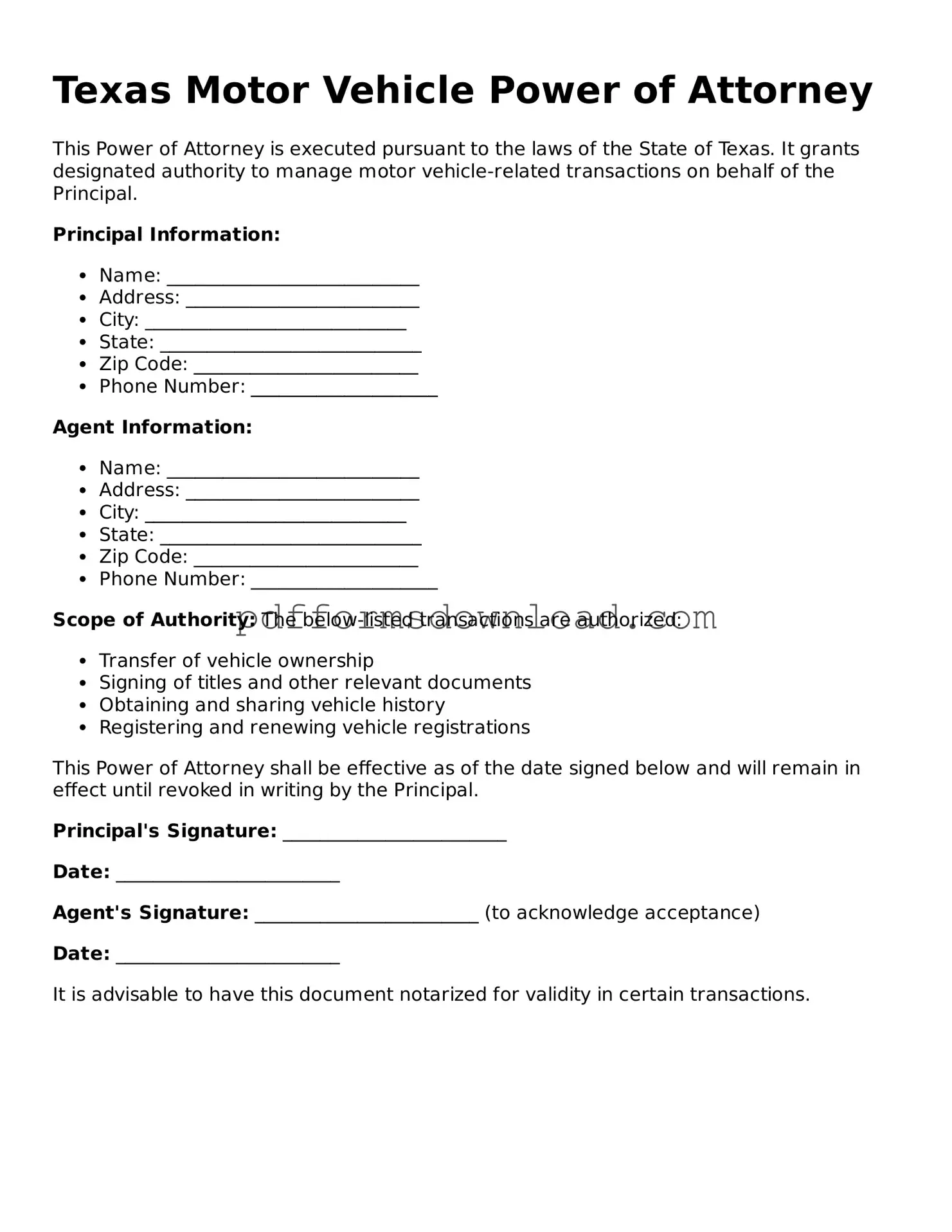Printable Texas Motor Vehicle Power of Attorney Form
The Texas Motor Vehicle Power of Attorney form is a legal document that allows an individual to designate another person to act on their behalf in matters related to motor vehicle transactions. This form is particularly useful for situations where the vehicle owner cannot be present to complete necessary paperwork. For those looking to grant authority for vehicle-related tasks, filling out the form is an essential step; click the button below to begin.
Make This Document Now

Printable Texas Motor Vehicle Power of Attorney Form
Make This Document Now

Make This Document Now
or
Free PDF File
Your form is almost ready
Complete your Motor Vehicle Power of Attorney online — edit, save, and download easily.